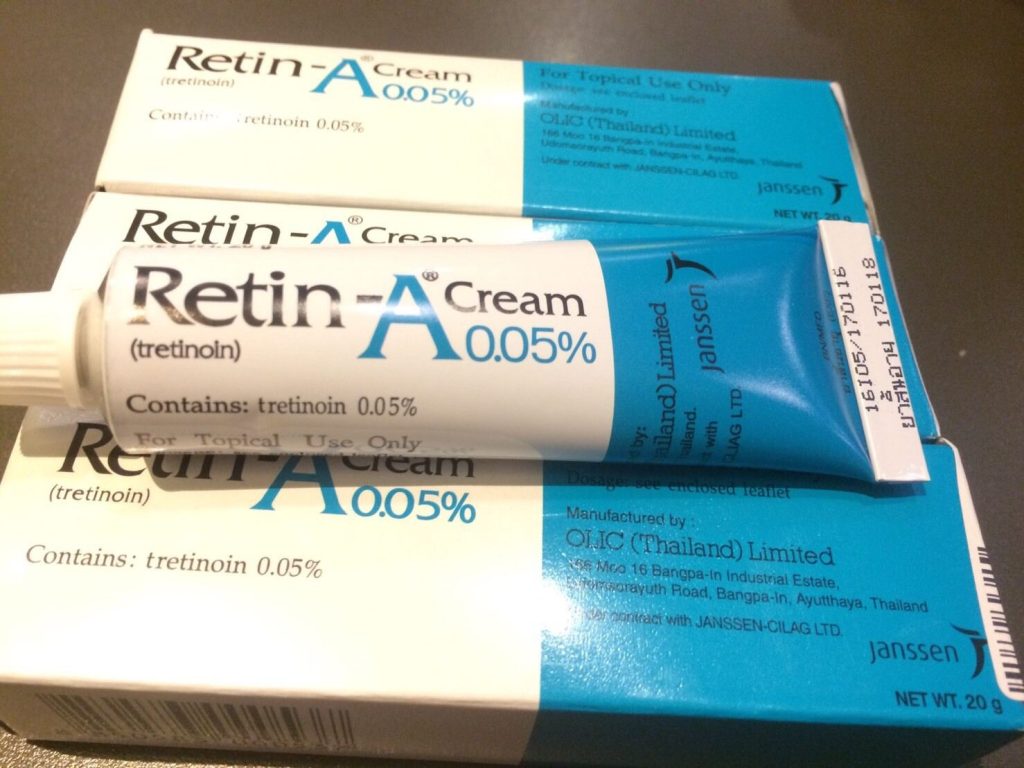
Tretinoin helps reduce the appearance of fine lines and wrinkles, smoothes rough skin, and fades discoloration from sun damage or aging. It also minimizes the size of pores and has anti-inflammatory effects that improve acne.
Wash your face 2 to 3 times a day with mild, non-medicated soap and gently dry your skin with a soft towel. Avoid extreme climates as tretinoin may make your skin more sensitive to cold and wind.
Acne
It treats acne by reducing oily skin and dead skin cells that clog pores, which prevents pores from becoming infected by bacteria. It also reduces the inflammation caused by the bacteria, which allows for a clearer complexion.
Tretinoin also minimizes the appearance of fine lines and wrinkles, restoring the skin’s youthfulness. It does this by increasing cell turnover, which helps to smooth rough skin textures and reduce the appearance of age spots and other forms of hyperpigmentation.
Tretinoin can make your skin sensitive to sunlight, so it’s important that you use a broad spectrum sunscreen and wear a hat whenever you go outside. It’s also a good idea to avoid sunlamps, which can increase your risk of skin cancer and early skin aging. Tretinoin can cause your skin to become irritated or dry, especially during the first 2 or 3 weeks of use, so you should gently wash it and moisturize often. If this persists, talk to your doctor.
Fine lines and wrinkles
The same ingredient that prevents breakouts and encourages skin cell turnover also reduces the appearance of fine lines and wrinkles. It works by encouraging collagen production, fading actinic keratosis spots and evening skin tone, while improving skin roughness and dullness caused by sun damage.
It also helps to strengthen skin by reducing the breakdown of collagen and elastin, making it more resistant to both dynamic and static wrinkles. Fine lines are subtle creases on the surface of your skin that appear when you smile or make other facial expressions. Wrinkles are deeper creases that form when your skin loses elasticity over time.
Always use tretinoin as directed by your doctor. It may take weeks or even months before you see results, so be patient. You should also avoid using products that contain ingredients like alcohol, menthol or spices, as these can irritate the skin. You can use a moisturizer to help keep your skin from drying out while using tretinoin.
Hyperpigmentation
Sometimes the skin produces excess melanin, causing brown spots or patches to form. This is called hyperpigmentation & can happen due to sun damage, pregnancy, medications or skin conditions like psoriasis or eczema.
Tretinoin can help get rid of existing hyperpigmentation, as well as prevent new spots from forming. It works by slowing down cell turnover, which helps to fade existing spots & also prevents the production of new melanin.
Before using tretinoin, it’s important to wash your hands and the area you’re treating with a mild soap (not a scrub or medicated one) and water. You should also avoid any other skincare products containing benzoyl peroxide, salicylic acid or sulfur, as these can cause severe irritation when combined with tretinoin.
Before prescribing a topical treatment, an ASDS physician will ask you about your medical history, examine the skin under a Wood lamp and order blood tests to check for vitamin D, hormones and iron. They can also recommend other treatments such as kojic acid, which can decrease the amount of melanin the skin makes.
Age spots
Tretinoin lightens age spots by encouraging the skin to shed older, damaged cells and replace them with fresh, new ones. This also helps fade blotches and other discolorations that may have developed over time from sun exposure or uneven skin tone.
It can take 2 to 3 weeks for the treatment to start working. In the meantime, your oil glands will stop producing excess sebum and dry, flaky cells will begin shedding. But don’t be impatient — consistent use is key to seeing results.
Apply a pea-sized amount of the cream or gel to clean, dry skin each night before bed. Your dermatologist will advise you on the correct concentration for your needs, and a gradual ramp-up is often best to avoid irritation. Avoid washing your face more than twice per day and do not scrub, as this can irritate the skin. Also, avoid using skin products containing benzoyl peroxide, sulfur, resorcinol or salicylic acid unless your doctor directs you to do so.Tretinoin 0.1% cream